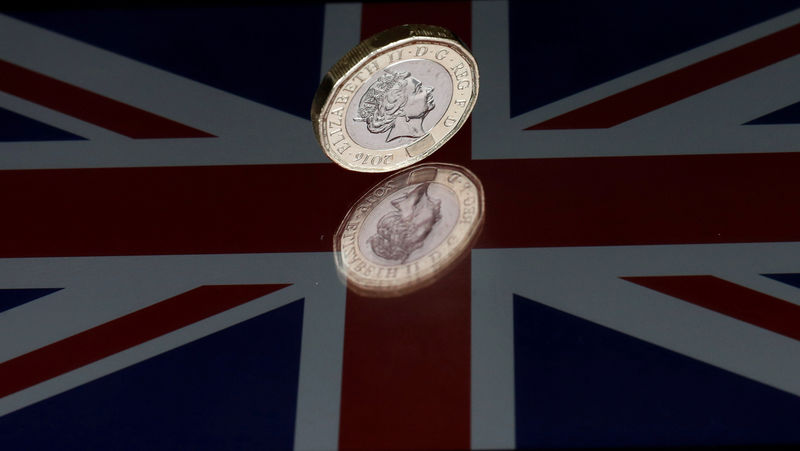Investing.com - The pound ticked higher against the dollar on Monday but gains were checked after data showing that growth in the dominant UK service sector slowed last month as political uncertainty ahead of this week’s election and rising inflation weighed.
GBP/USD was at 1.2907 by 09.30 GMT, off an overnight low of 1.2860.
Financial data firm Market said the UK services purchasing managers’ index fell to 53.8 in May, down from April’s four month high of 55.8.
New business growth slowed, with some clients holding off big decisions until after the elections. The squeeze on household incomes, due to rising inflation, was another factor in the slowdown, the report said.
The weak performance by the service sector increased the risk that quarterly growth in the overall economy might not hit its forecast of 0.5%.
"Optimism about the year ahead is running below the long-run average, weighed down principally by concerns over Brexit, political uncertainty and weaker spending by households," Markit economist Chris Williamson said.
Sterling came under pressure earlier after the third terrorist attack in the UK in less than three months killed at least seven people on Saturday.
The attack came ahead of Thursday’s election, in which polls have indicated is much tighter than previously predicted, with Prime Minister Theresa May’s Conservative Party’s lead narrowing.
While pollsters still expect May will win the most seats in the election, a narrow win could throw Britain into political deadlock just days before formal Brexit talks with the European Union are due to begin on June 19.
The softer euro was lower against the pound, with EUR/GBP down 0.25% to 0.8736 from around one-and-a-half-month highs of 0.8758 earlier.
In the euro zone, data confirmed that the region’s private sector kept growing at its fastest pace since the financial crisis last month.
The Markit composite PMI, which measures activity at service sector and manufacturing firms, came in at 56.8, matching April’s reading, which was the highest since 2011.
The U.S. dollar index, which measures the greenback’s strength against a trade-weighted basket of six major currencies, edged up 0.11% to 96.72.
The index hit a seven month trough of 96.61 on Friday, the weakest level since the U.S. presidential election on November 8 after a disappointing employment report.
The U.S. economy added 138,000 jobs last month the Labor Department reported on Friday, falling far short of economists’ expectations for 185,000 new jobs.
Most analysts believe the poor data will not stop the Federal Reserve from raising interest rates at its meeting later this month, but most market participants now expect a more dovish path in the second half of the year.
